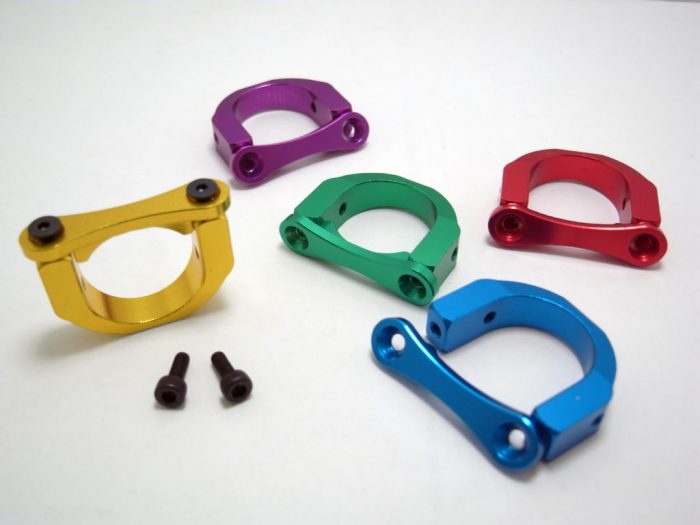Bala Works established in the year 1984, offers anodizing and electroplating services to aerospace industry, medical devices and equipment industry and automobile ancillary companies. They are AS 9100 and Nadcap Certified.
Services they offer:
Chromic Acid Anodizing
Specification:
- MIL-A-8625 TY-I CL-1
- VS 1-3-1-3
- 914-032-093
- SP-021
- EEP 001
- DEF 03-24
Sulphuric Acid Anodizing
Specification:
- MIL-A-8625 TY-II
- AMS 03-25
- TS-112 D2
- AMS 2471
- JED-007
- MES-M-00-SF-009
Hard Anodizing
Specification:
- MIL-A-8625 TY-III CL-1
- VS 1-3-1-4
- VS 1-3-1-62
- MSF-045
- 23 845 1446 3
- MIL-A-8625 TY-III CL-1
Passivation
Specification:
- QQ-P-35
- ASTM A967
- AMS 2700
- TS-112 F2A
- 1000/SC/00098
- ACES 16P50
- ACES 16P51
- ASTM A380/380M
- MIL-DTL-5002
- SP-031
Chemical Conversion – Hexavalent
Specification
- MIL-DTL-5541 TY-I
- AMS 03-18
- TS-112 D6
- TS-112 D6A
- TS-112 D6B
- TS-112 D6C
- WKA 521004
- PS 111.21
- ELDEC 50.70.04
- 580-0036-001
- 914-032-064
- TEC 400
- MIL-DTL-5541 TY-I
Chemical Conversion-Trivalent
Specifications:
- MIL-DTL-5541 TY-II
- HAP 2100
- TEC 112-151-4
- JED-259
PTFE- Impregnated Aluminium Oxide
Specifications:
- AMS-2482
Electropolishing
Specifications:
- ASTM B916
Sulphuric Acid Anodising Colours
Specifications:
- MIL-A-8625 TY-II-CL-2 (Black)
- MIL-A-8625 TY-II-CL-2 (Red)
- MIL-A-8625 TY-II-CL-2 (Green)
- MIL-A-8625 TY-II-CL-2 (Purple)
- MIL-A-8625 TY-II-CL-2 (Orange)
- MIL-A-8625 TY-II-CL-2 (Blue)
- MIL-A-8625 TY-II-CL-2 (Brown)
- MIL-A-8625 TY-II-CL-2 (Yellow)
Anodizing is an electrolytic passivation process used to increase the thickness of the natural oxide layer on the surface of metal parts.
The process is called anodizing because the part to be treated forms the anode electrode of an electrolytic cell. Anodizing increases resistance to corrosion and wear, and provides better adhesion for paint primers and glues than bare metal does. Anodic films can also be used for several cosmetic effects, either with thick porous coatings that can absorb dyes or with thin transparent coatings that add interference effects to reflected light.
Anodizing is also used to prevent galling of threaded components and to make dielectric films for electrolytic capacitors. Anodic films are most commonly applied to protect aluminium alloys, although processes also exist for titanium, zinc, magnesium, niobium, zirconium, hafnium, and tantalum. Iron or carbon steel metal exfoliates when oxidized under neutral or alkaline micro-electrolytic conditions; i.e., the iron oxide (actually ferric hydroxide or hydrated iron oxide, also known as rust) forms by anoxic anodic pits and large cathodic surface, these pits concentrate anions such as sulfate and chloride accelerating the underlying metal to corrosion. Carbon flakes or nodules in iron or steel with high carbon content (high-carbon steel, cast iron) may cause an electrolytic potential and interfere with coating or plating. Ferrous metals are commonly anodized electrolytically in nitric acid or by treatment with red fuming nitric acid to form hard black Iron(II,III) oxide. This oxide remains conformal even when plated on wiring and the wiring is bent.
Anodizing changes the microscopic texture of the surface and the crystal structure of the metal near the surface. Thick coatings are normally porous, so a sealing process is often needed to achieve corrosion resistance. Anodized aluminium surfaces, for example, are harder than aluminium but have low to moderate wear resistance that can be improved with increasing thickness or by applying suitable sealing substances. Anodic films are generally much stronger and more adherent than most types of paint and metal plating, but also more brittle. This makes them less likely to crack and peel from ageing and wear, but more susceptible to cracking from thermal stress.
Balaa Works
Anodizing Services to Aerospace Industry
NO 2, Sri Ambal Nagar,
8th Street, Keelakattalai,
Chennai-600117, Tamil Nadu, India.
+91 44 22476306, 22473915
+91 9600100087
balaawrk@gmail.com
balaaworks@balaaworks.com

One thought on “Bala Works”